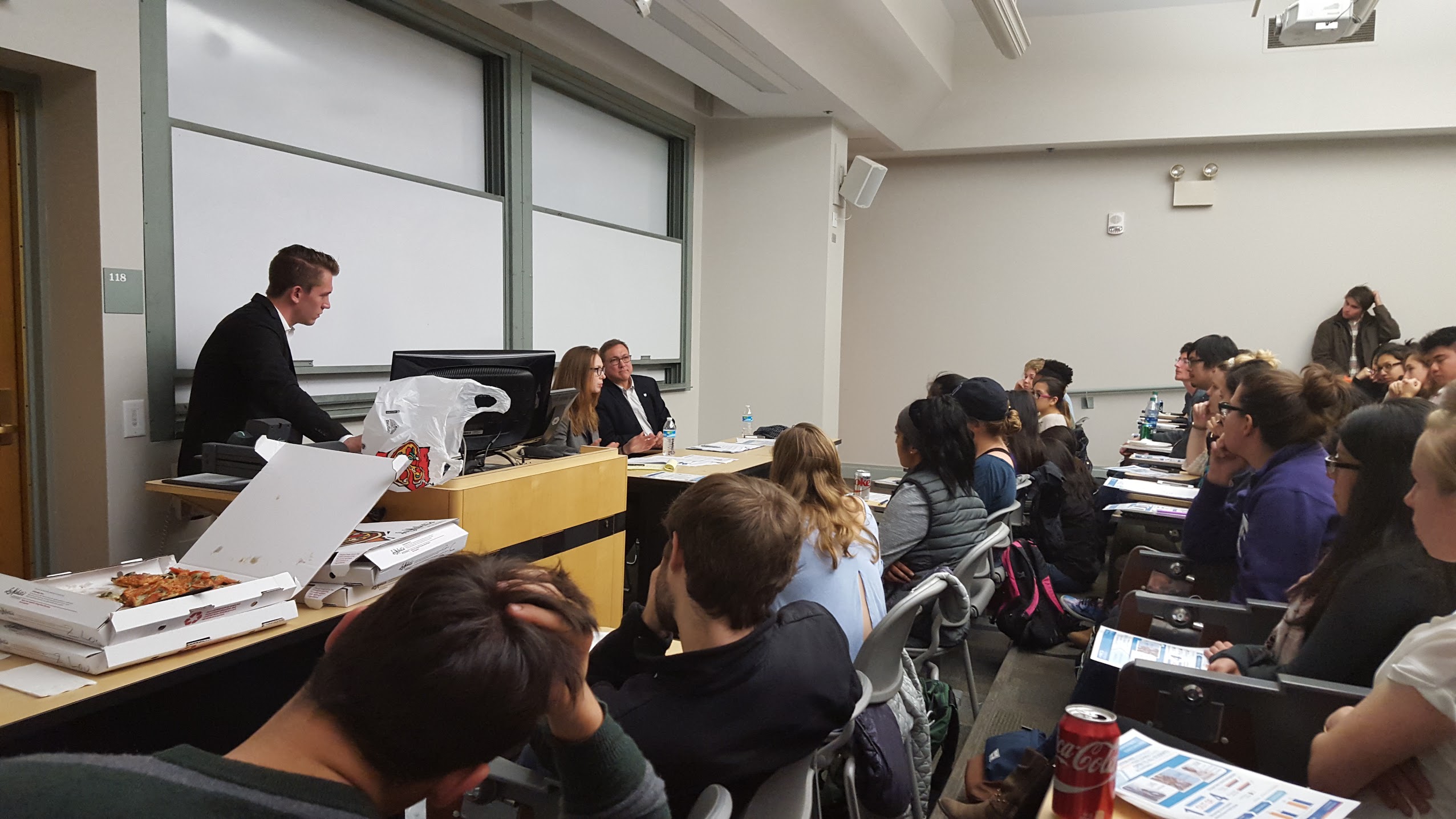As Chicago continues to overhaul its school system, two education experts debated the merits of charter schools at University Hall Wednesday night, discussing accountability, performance, finances and innovation.
Pam Witmer, policy manager at the Illinois Network of Charter Schools, and Dan Montgomery, president of the Illinois Federation of Teachers, discussed the topic for an hour before a packed crowd at an event held by Educate. Discuss. Unite.
The debate comes as charters expand across Chicago, sometimes replacing neighborhood public schools that the city considered to be struggling or to have too few students. There are now 130 charter schools operating in Chicago, according to CPS data, and the school board is currently considering proposals to open 13 more.
The changes have provoked heated debate on both sides, and Wednesday was no exception. The tension was palpable and Witmer and Montgomery traded jabs on education policy.
“Putting flags [of colleges] in classrooms has been happening at public schools for a hundred years,” Montgomery said, referring to a practice Witmer touted as an effective charter school innovation.
“Yeah, a lot of things have been happening at public schools for a hundred years,” Witmer said.
The brief exchange underscored the fundamental disagreement between the two: whether public schools were failing. Witmer argued that inner city public schools have not given hispanic, black and low-income students a quality education. She said charters use innovative tactics to give students an effective alternative.
“[Charter schools are] pretty darn innovative,” Witmer said. “There’s room for improvement but we are improving significantly with our students of color and our low income students.”
Montgomery countered that public schools are not in fact failing, and that if one accounts for poverty, they are among the best in the world. He said public schools were key to democracy because they educate all students, regardless of background or ability, together. Charter schools undermined that mission, Montgomery argued.
“When we balkanize public education, aerosolize it, and say let’s have lots and lots of little charters run by a number of private entities, taking public money away from regular public schools, we’re failing,” Montgomery said.
After brief openings, the floor was opened up to questions. SESP sophomore Emily Comstock attended a charter school in Arizona, where she says teachers focused on "innovative" measures, such as reading classical texts, that Comstock said prevented her from gaining a basic foundation of knowledge. She asked what accountability measures were in place to make sure charter schools gave students a rounded education.
“When she started to talk about how they were innovative, my blood pressure just rose,” Comstock said after the debate. “I couldn’t imagine her saying that they were innovative and not take into account that [my charter school] was missing something, that people were falling through the cracks.”
Witmer argued that charter schools are more accountable because the city could revoke their contract at any time. Montgomery said charters, run by private entities, lacked the transparency of public schools.
Despite the clear division, Witmer and Montgomery agreed that there was inequity in how schools are funded. Because schools are funded through property taxes, students in wealthier suburbs receive more funds, and therefore a better education, than those in low-income areas of Chicago, they argued.
“We have to adjust those things so we’re not so heavily reliant on property taxes and we don’t have these giant disparities,” Montgomery said. “We agree. And if you do that there will be a lot more money for the city of Chicago to do a better job.”
